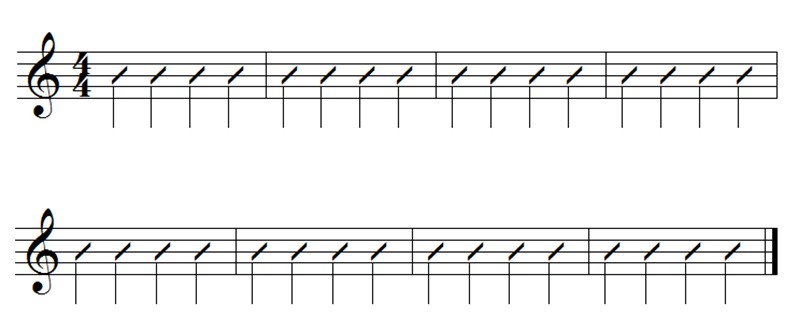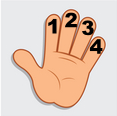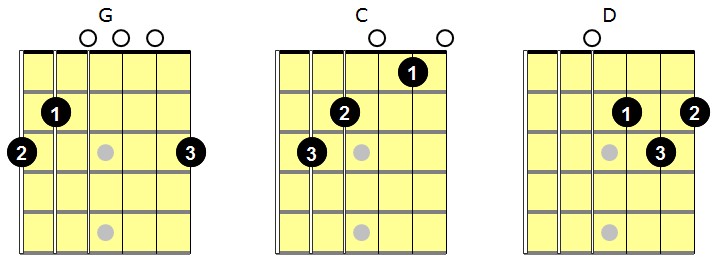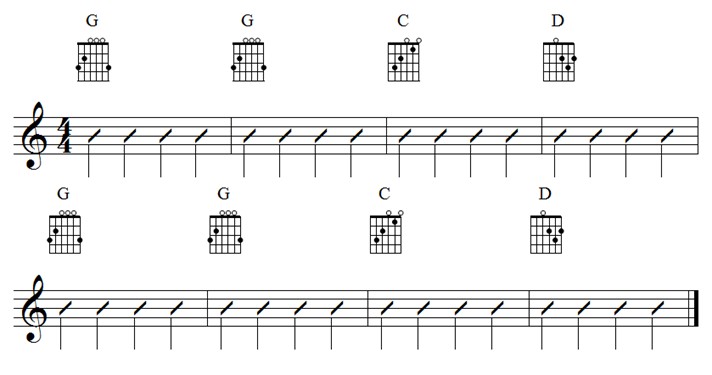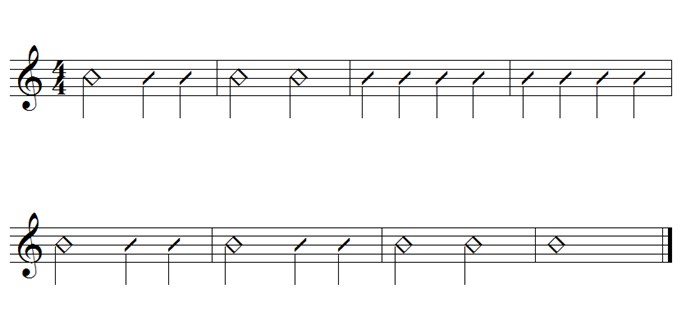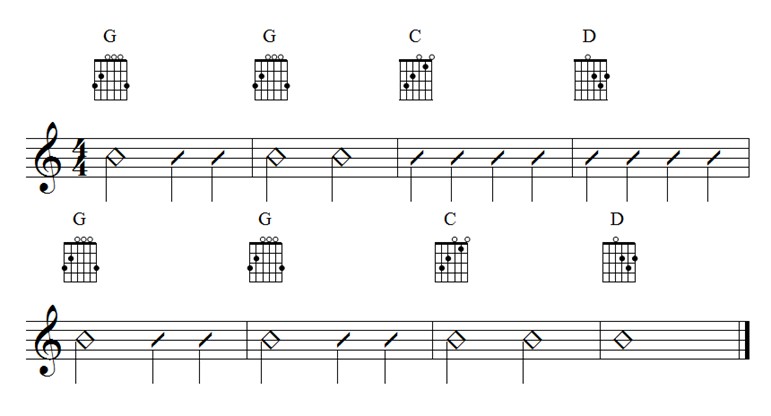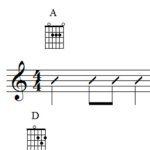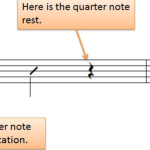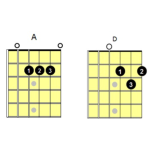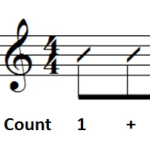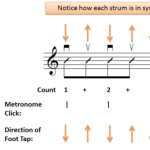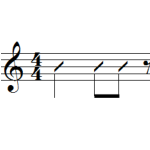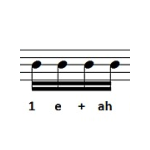Introduction
In the Rhythm Guitar Basics Parts 1-3 tutorials, we looked at whole notes and half notes and basic strumming patterns on the guitar.
In this tutorial, we turn our attention to the quarter note.
The Quarter Note
The quarter note receives one beat in 4/4 time.
Here is what a quarter notes look like in standard notation:
Now here are quarter notes written in rhythmic notation:
Whether quarter notes are written in standard notation, or rhythmic notation they are counted the same way…
A quarter note is sustained for one beat in 4/4 time.
Now it’s time to get clapping…
Turn your metronome on to 60 beats per minute and clap the rhythm that follows..
Key Points to Remember
- Count out loud as clap.
- Tap your foot on the beat with the metronome.
- Be sure to keep a consistent tempo.
Now let’s apply it to the guitar…
For this example we will use G, C and D major chords.
Quarter notes are usually performed with down-strokes, so play the following with down-strokes.
Now it’s time to mix things up a bit. The following strumming pattern uses quarter, half and whole notes.
As you will recall from the previous basic rhythm guitar tutorials, whole notes and half notes are usually performed with down-strokes.
So use only down-strokes for this rhythm guitar strumming exercise. But, before we play the chords, I’d like you to clap the rhythm and count out loud.
Be sure to tap your foot with the metronome.
As you will recall from our previous tutorials, you should tap your foot with each click of the metronome.
Here’s the new rhythm pattern:
Once you’ve clapped the rhythm at least three times, play it with chords…
So how did you do?
You should now create some different rhythm patterns using whole, half and quarter notes.
The more you practice different strumming patterns, the easier they become.
Recommended Resource
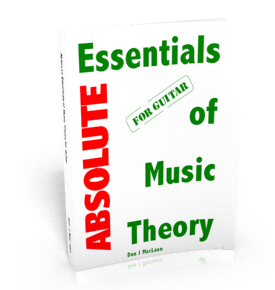 Are you ready to get your hands on a proven, fast and easy way to learn the basics of music theory for guitar? The Absolute Essentials of Music Theory for Guitar lays out what you need to know about music theory crystal-clear.
Are you ready to get your hands on a proven, fast and easy way to learn the basics of music theory for guitar? The Absolute Essentials of Music Theory for Guitar lays out what you need to know about music theory crystal-clear.
Mastering the basics of guitar theory will open up a whole new world to you. You will learn guitar faster and hear big improvements in your guitar playing.
Get started now and take the mystery out of music theory so you can learn guitar faster…




